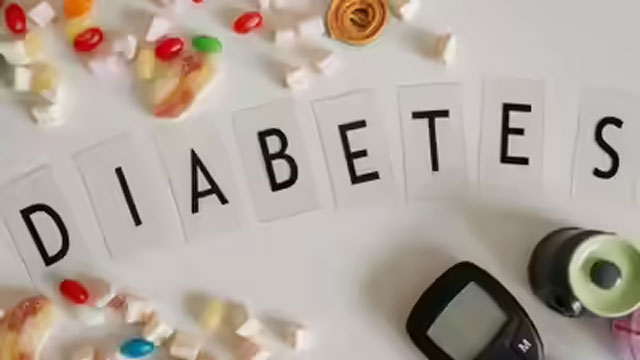Daijiworld Media Network – New Delhi
New Delhi, Nov 15: Managing diabetes goes far beyond choosing healthier meals — it also requires understanding how certain foods and drinks can interfere with medication. Since diabetes drugs work through different mechanisms such as improving insulin sensitivity, boosting insulin production or slowing digestion, everyday dietary choices can affect how quickly these medicines act, how strongly they work and how long their effects last. Some foods may delay absorption, trigger sudden spikes in blood glucose or worsen side effects like nausea, bloating or low blood sugar. Health experts say awareness of these interactions can help people avoid unexpected fluctuations and keep medication as effective as possible. Here are five common foods and drinks that do not pair well with diabetes medications.
High-fat meals are among the biggest triggers for delayed gastric emptying. Nutritionists point out that heavy, fried or creamy foods slow digestion, which in turn delays how quickly certain diabetes medications take effect. People using GLP-1 receptor agonists often report stronger discomfort — including nausea, vomiting and bloating — after consuming fried snacks, processed meats and rich desserts. A study in the Journal of Clinical Endocrinology & Metabolism found that high-fat meals significantly slowed stomach emptying and altered post-meal glucose responses. Regular intake of saturated fats from pastries, whole-fat dairy, sausages or fatty meats is also linked to increased insulin resistance, making blood sugar harder to control.

Foods loaded with added sugar pose a different challenge. Sweets, sugary drinks, breakfast cereals and packaged desserts can cause rapid glucose spikes that counter the effects of medication. While these foods do not directly block drugs, they create a constant push-and-pull in the body — medication lowers blood sugar, while sugary items immediately raise it again. Nutritionists recommend choosing whole fruits, legumes, vegetables and whole grains, which contain natural fibre to slow the release of glucose and support smoother medication response.
Highly processed and refined carbohydrates behave similarly to sugar once digested. Items such as white bread, biscuits, crackers, puff pastries, chips and refined-flour noodles break down rapidly, leading to sharp glucose spikes. For those taking fast-acting insulin, this can cause a pattern of sharp rise followed by an aggressive drop. Experts say that pairing refined carbs with protein or healthy fat can slow this effect, but they should not dominate the diet. Whole grains such as oats, quinoa, brown rice, and fibre-rich foods like beans and lentils help maintain steady blood glucose levels and improve how well medications perform.
Caffeine, when consumed in excess, can also interfere with certain diabetes medicines. Since caffeine increases urination, it may compound the dehydrating effect of SGLT2 inhibitors — drugs that reduce blood glucose by promoting urination. Too much caffeine from strong coffee, tea or energy drinks may lead to dehydration, dizziness and electrolyte imbalance. Up to 400 mg per day is considered safe, but patients on SGLT2 inhibitors are advised to monitor their intake carefully.
Alcohol remains one of the most significant risk factors for people on insulin or insulin-stimulating medications. It suppresses the liver’s ability to release stored glucose, increasing the risk of hypoglycaemia, especially when consumed on an empty stomach.
Alcohol also worsens nausea and digestive discomfort linked to several diabetes drugs, and compounds dehydration — a concern for those on medications already affecting kidney function. Doctors advise spacing alcohol and medication doses and keeping intake within recommended limits: generally one drink per day for women and two for men, depending on medical advice.
Health experts emphasise that thoughtful food choices can help patients maintain better glycaemic control, reduce unwanted side effects and support the full effectiveness of their diabetes medications.